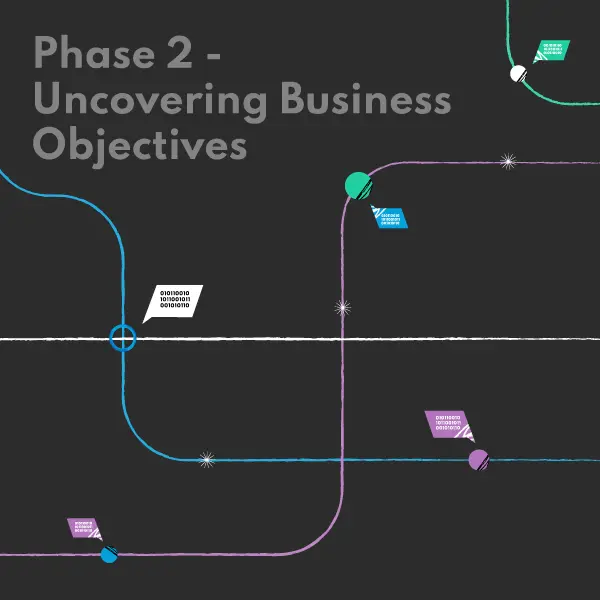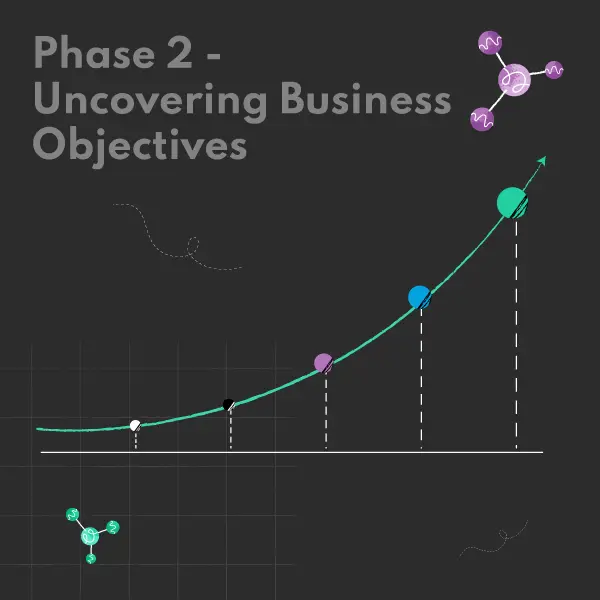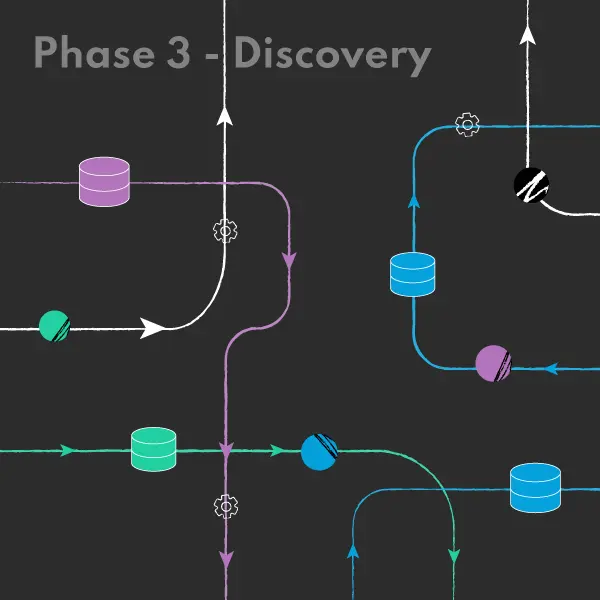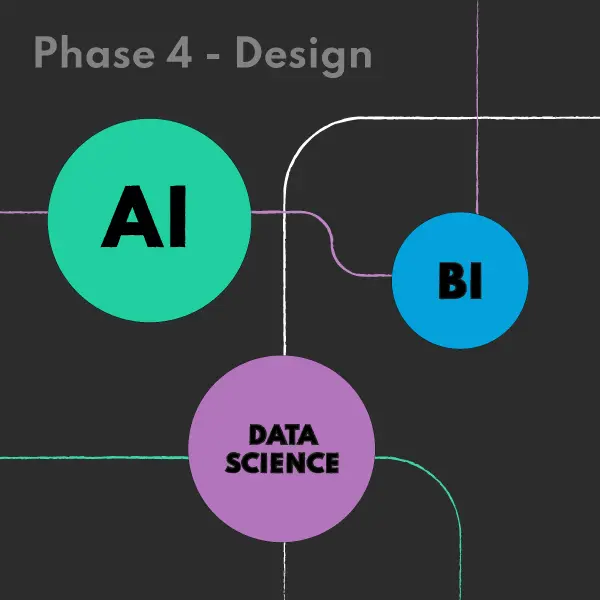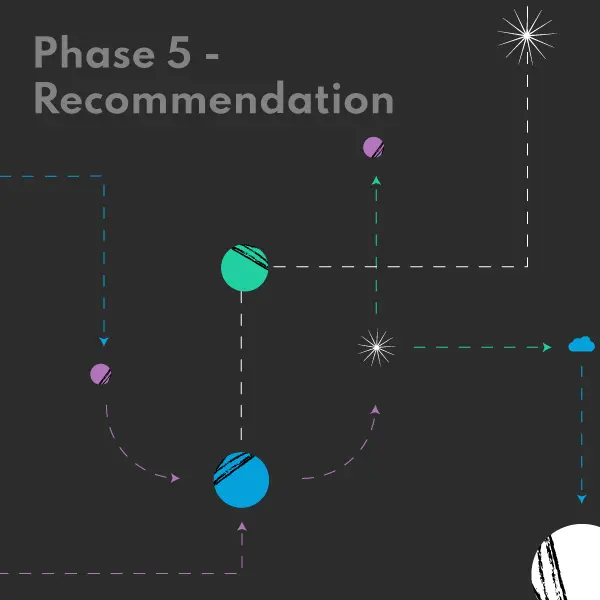This site uses cookies for analytical purposes.
Bootcamp Plan
Ready to Harness the Power of Data? Reach Out to Our Data Strategy Consultants
Our dedicated data strategy consulting team is available to dig deeper into your data and help you to understand how significant the impact can have on your business. Don’t wait, and contact us to harness the value of data with our Data Strategy Bootcamp! It is designed to empower you with the knowledge and skills to excel in today's data-centric landscape.

Dorota Owczarek
AI Product Lead

Krzysztof Suwada
Data Science Expert

Wojciech Marusarz
Senior Data Engineer
Benefits of our Data Strategy Bootcamp
-

Strategic Decision-Making
Data Strategy Bootcamps teach participants how to harness data to inform strategic decision-making. By understanding how to collect, analyze, and interpret data, individuals can identify patterns, trends, and insights that enable better decision-making across various domains, such as marketing, operations, finance, and product development.
-

Improved Business Performance
A data-driven approach can significantly enhance business performance. By attending a Bootcamp, individuals learn how to leverage data analytics techniques to identify operational inefficiencies, optimize processes, and discover growth opportunities. This knowledge can lead to improved productivity, cost savings, and revenue generation for organizations.
-

Effective Data Governance
Data strategy Bootcamps emphasize the importance of data governance and ethics. Participants learn about data privacy, security, and regulatory compliance, ensuring they have the knowledge and skills to handle data responsibly and mitigate risks associated with data management.
-

Data-Driven Innovation
By attending a data strategy Bootcamp, individuals gain exposure to innovative data technologies and emerging trends in the field. This enables them to explore new possibilities for leveraging data to drive innovation and create value within their organizations. They learn about advanced analytics techniques, machine learning algorithms, and data visualization tools, empowering them to unlock the full potential of data.
-

Better Resource Allocation
Understanding data can help organizations optimize resource allocation. By attending a Data Strategy Bootcamp, individuals gain the skills to identify patterns and trends in data that can inform resource allocation decisions. This could include optimizing marketing budgets, identifying cost-saving opportunities, or improving supply chain management, ultimately leading to improved resource allocation and increased cost-effectiveness.
-

Organizational Transformation
For organizations sending employees to a Data Strategy Bootcamp can facilitate organizational transformation. By equipping employees with data literacy and strategy skills, companies can foster a data-driven culture, enhance decision-making processes, and drive innovation, leading to long-term competitive advantage.
Why Hire nexocode to Run a Data Strategy Bootcamp?
-

Expertise and Experience
Our company brings a wealth of expertise and experience in the field of data strategy. We have a team of seasoned professionals who have worked on numerous data strategy projects across various industries. Our data engineers are highly knowledgeable and can provide valuable insights and practical guidance during the Bootcamp.
-

Customization
We can tailor the Data Strategy Bootcamp to meet your specific needs and objectives. Whether you are looking for a general overview or a more specialized focus on a particular industry or technology, we can customize the program accordingly.
-

Comprehensive Approach
Our Data Strategy Bootcamp covers a wide range of topics and areas related to data strategy. We provide a flexible approach to ensure participants gain a well-rounded understanding of data strategy and its implementation.
-

Long-Term Partnership
Hiring nexocode for a Data Strategy Bootcamp can be the beginning of a long-term partnership. We can continue to support your organization with additional consulting services, data architecture implementation, and guidance as you progress on your data strategy journey.
Data Strategy Consulting - Your Questions Answered
- Why should we hire data strategy consultants?
-
Hiring data strategy consultants brings a wealth of expertise and experience to your organization. They can provide valuable insights and practical guidance to develop a comprehensive data strategy that aligns with your business objectives and leads to data-driven innovation and solutions.
- How can data-driven innovation be achieved through a comprehensive data strategy?
-
A comprehensive data strategy enables organizations to unlock the potential of data-driven innovation by identifying and leveraging data capabilities, including unstructured data, and developing data-driven solutions to address business objectives. This approach fosters a data-driven culture and enables the development of innovative data-driven solutions to drive business transformation and success.
- How can data strategy consultants help in developing a successful data strategy?
-
Data strategy consultants play a crucial role in developing a successful data strategy by identifying and leveraging existing data assets, conducting in-depth data analysis, and aligning data initiatives with business objectives. A data strategy consultant can also provide guidance on developing a roadmap for data strategy implementation and managing organizational change to foster a data-driven culture.
- What is the role of data architecture in data strategy?
-
Data architecture is a critical component of data strategy. It involves identifying and designing the structure, integration, and management of data assets within an organization. A solid data architecture forms the foundation for a comprehensive data strategy, enabling effective data collection, storage, and accessibility for data-driven decision-making.
- How can data strategy consulting firms add value to our organization?
-
Data strategy consulting firms bring specialized expertise and experience to the table, offering a comprehensive approach to data strategy development. They can help you navigate modern data challenges, leverage advanced analytics, and align data initiatives with your business priorities. With their communication skills, data strategy consultants can effectively convey actionable insights to drive business value and transformation.
- What is a Data Strategy Bootcamp?
-
Data Strategy Bootcamp is an intensive training program designed to equip individuals with the knowledge and skills required to develop effective data strategies within organizations. It focuses on understanding the role of data in business decision-making and provides practical guidance on how to leverage data to drive organizational success.
- Who should attend a Data Strategy Bootcamp?
-
Data Strategy Bootcamps are suitable for professionals from various backgrounds, including but not limited to data analysts, business analysts, data scientists, data engineers, project managers, and executives. Anyone interested in harnessing the power of data to make informed decisions and drive strategic initiatives can benefit from attending a Data Strategy Bootcamp.
- How long is the Data Strategy Bootcamp?
-
The expected duration of the Bootcamp is 8 weeks. It also depends on the client's needs and may be extended if necessary.
- What can I expect to learn in a Data Strategy Bootcamp?
-
In a Data Strategy Bootcamp, you can expect to learn various aspects of data strategy, including:
- Understanding the importance of data strategy and its alignment with organizational goals.
- Developing a data governance framework to ensure data quality, security, and compliance.
- Creating a data management plan to optimize data collection, storage, and accessibility.
- Leveraging data analytics techniques and tools to extract insights and make data-driven decisions.
- Implementing data visualization and reporting strategies to communicate data insights effectively.
- Developing a roadmap for data strategy implementation and managing organizational change.
Do you have questions about how we can help?
Get in touch with us today to explore how we can support your data and gain a deeper understanding of our Data Strategy workshops. We are excited to receive your message and engage in further discussions on data architecture!

